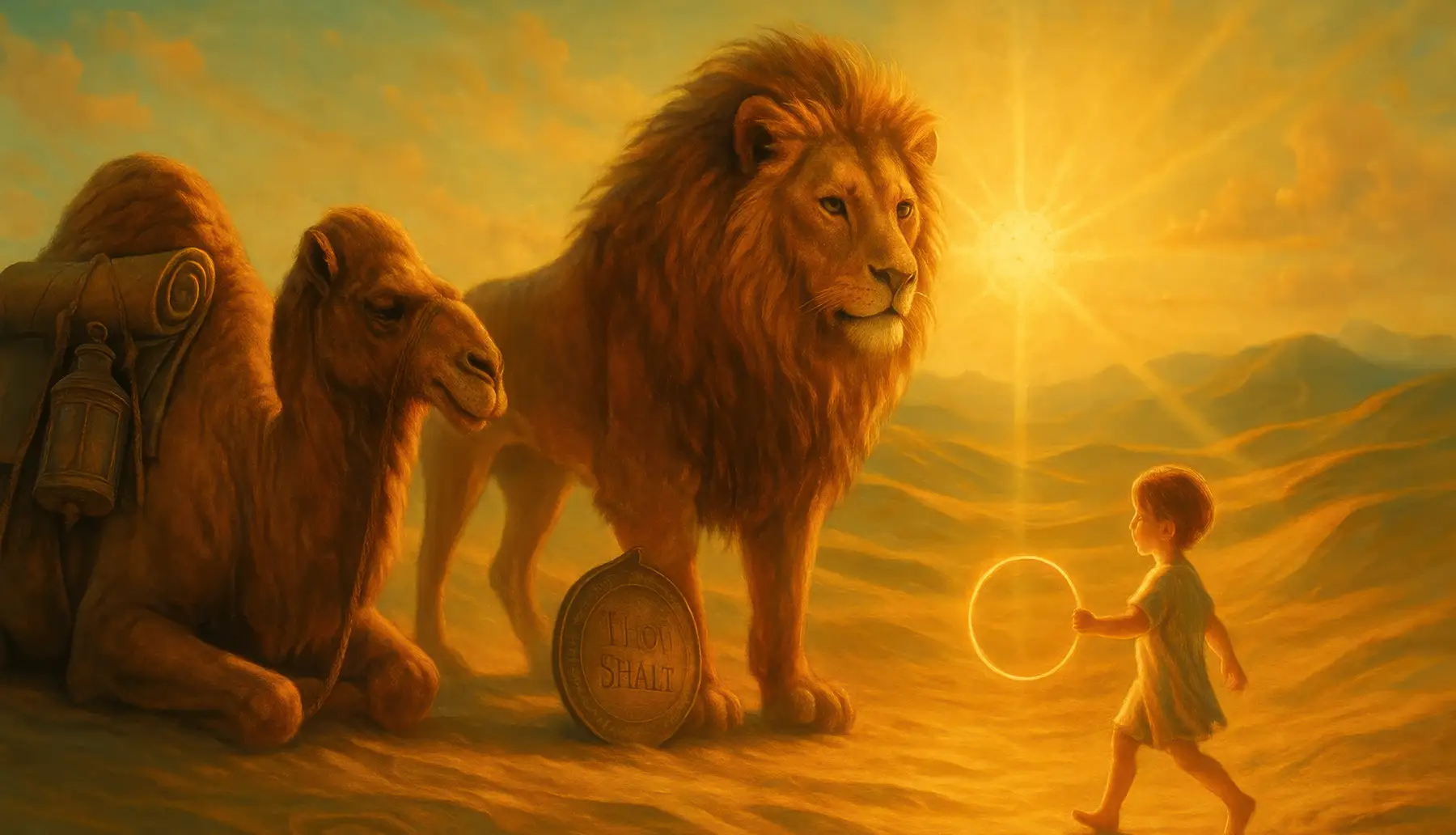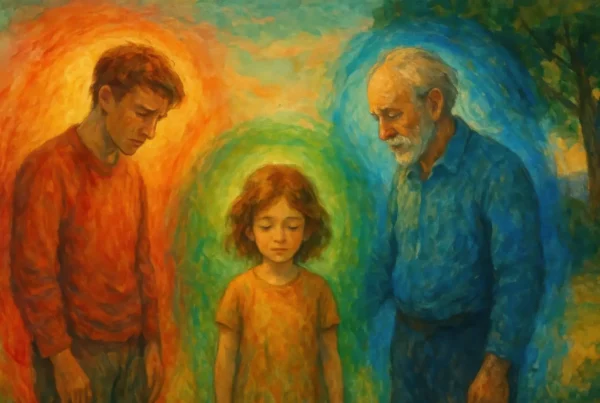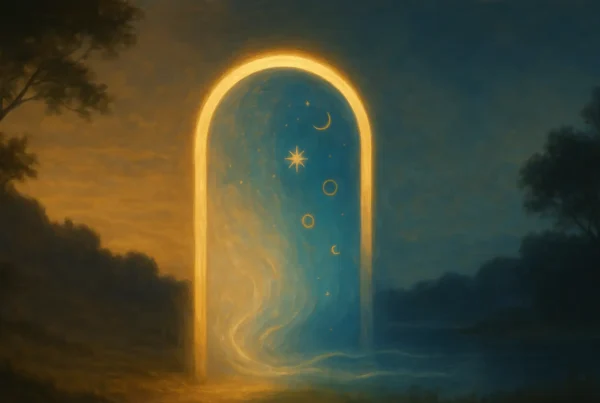BOOK YOUR WORKSHOP TODAY
All posts published here are presented as casual conversation pieces to provoke thought in some direction or another, they do not necessarily represent fixed opinions of the Inner Council, as our work exists beyond the spectrum of bound statement and singular clause.
Thus spoke Zarathustra
F or many years after Thus Spoke Zarathustra was penned Nietzsche continued to refer to his novel Thus spoke Zarathustra as the key to his philosophy. How much clearer the novel prose is than the dense, but necessary contradiction in awkward flirtations with factual assertion. Nietzsche enjoyed wriggling with statements and sentiments, shifting sides with shimmying recalcitrance. Fiction was a safe place for the deepest concepts of his philosophy to live on eternally.
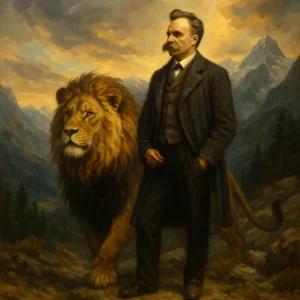
“I love him who lives in order to know, and seeks to know so that one day the Overman may live.”
At the outset Nietzsche presents us with his own early metaphor of the Hero’s Journey, called here the Three Transformation of the spirit. The camel, to the lion, to the child. These transformational personalities were constructed by Zarathustra during the 10 years of isolation spent in the mountains during his 30s. It was in real life, in the mountains of Switzerland that Nietzsche would come to his self-realising epiphany that led to writing of the Persian influenced protagonist Zarathustra. The character eager to return to the world and present the transformation to wretched people, to teach them how to evolve beyond the suffering spirit and to cross the bridge to that of the superhuman (or over-human from the German translation). It is this construct of the three transformational developments of the psyche that precede the many other wisdoms that emanate from Zarathustra’s oral discourse.
Much of the analysis of these transformations can be understood clearly from the prose, thus spoke Zarathustra. There is one fatal flaw to the dialogue which must have plagued Nietzsche, for it extends beyond that of the preaching of Zarathustra—to the author himself. That once the child is across the bridge, the overhuman simply doesn’t desire their energy to tackle the ignorance of the masses, all is integrated. Nietzsche couldn’t win on these terms, and it drove madness in wrestling with the complexities of reason and logic in a subjective system. Objectivity doesn’t stand on the other side of the subjective, it is not an equal opposite. It is a small, insignificant, fictional, frozen autism surrounded by a soft, liquidity of the invisible. “It is by invisible hands that we are bent and tortured the worst”.— thus spoke Zarathustra.
“Science devours science; what is once claimed soon loses validity, impregnated with transitoriness. The Great Ideas, Inspiration, Ecstasy, Poetry are, on the contrary, eternal.”
The three transformations
Three transformations of the spirit I name for you: how the spirit becomes a camel, and the camel a lion, and the lion at last a child.
There is much that is heavy for the spirit, for the strong, weight-bearing spirit in which reverence dwells: the heavy and the hardest are what its strength desires. What is heavy? Thus asks the weight-bearing spirit, and thus it kneels down, like the camel, and would be well laden. What is heaviest, you heroes? Thus asks the weight-bearing spirit. That I may take it upon me and become well pleased with my strength.
Is it not this: lowering oneself, in order to hurt one’s haughtiness? Letting one’s folly shine forth, in order to mock one’s wisdom?
Or is it this: separating from our cause when it celebrates victory? Climbing high mountains in order to tempt the tempter?
Or is it this: feeding on the acorns and grass of understanding and for the sake of truth suffering hunger of the soul?
Or is it this: being sick and sending the comforters home, and making friends with deaf people who never hear what it is you want?
Or is it this: stepping into filthy waters, as long as they are the waters of truth, and not repelling cold frogs or hot toads?
Or is it this: loving those who despise us, and offering the spectre our hand when it wants to frighten us?
All these heaviest things the weight-bearing spirit takes upon itself: like the camel that presses on well laden into the desert, thus does the spirit press on into its desert. But in the loneliest desert the second transformation occurs: the spirit here becomes a lion; it will seize freedom for itself and become lord in its own desert. Its ultimate lord it seeks out here: his enemy it will become and enemy of his ultimate god; it will wrestle for victory with the great dragon.
What is the great dragon that the spirit no longer likes to call Lord and God? ‘Thou shalt’ is the name of the great dragon. But the spirit of the lion says ‘I will.’ ‘Thou shalt’ lies in its way, sparkling with gold, a scaly beast, and on every scale there glistens, golden, ‘Thou shalt!’
Values thousands of years old glisten on these scales, and thus speaks the mightiest of all dragons: ‘All value in things—that glistens on me.’ ‘All value has already been created, and all created value—that is me. Verily, there shall be no more “I will”!’ Thus speaks the dragon.
My brothers, why is the lion needed in the spirit? Why does the beast of burden, which renounces and is reverent, not suffice?
To create new values—that even the lion cannot yet do: but to create for itself freedom for new creation—that is within the power of the lion. To create freedom for oneself and a sacred Nay even to duty: for that, my brothers, the lion is needed.
To seize the right to new values—that is the most terrible seizure for a weight-bearing and reverent spirit. Verily, a predation it is to such a spirit and a matter for a predatory beast.
Once it loved, as most sacred for it, ‘Thou shalt’: now it must find delusion and caprice even in the most sacred, that it might seize its freedom from its love: for this predation the lion is needed. But say, my brothers, what can the child yet do that even the lion could not do? Why must the predatory lion yet become a child?
Innocence the child is and forgetting, a beginning anew, a play, a self-propelling wheel, a first movement, a sacred Yea-saying. Yes, for the play of creating, my brothers, a sacred Yea-saying is needed: the spirit now wills its own will, the one who had lost the world attains its own world. Three transformations of the spirit have I named for you: how the spirit became a camel, and the camel a lion, and the lion at last a child.—Thus spoke Zarathustra.
Back to the heart
Nietzsche touches closely on the cyclic fractal return of reaching into the autism of relative reality and folding back into unity of consciousness. As we extend outwards for a closer look there is danger that we can forget we’ve ‘zoomed in’ on the parched, desolate wastelands of individuality. This eternal recurrence, where one must embrace the idea of reliving every moment of life repeatedly, encourages a profound re-evaluation of existence and can be seen as a call for a conscious rebirth or transformation in one’s approach to life. Similarly, his idea of amor fati, a love of one’s fate, suggests that embracing the present moment, even its repetitions, can be a source of meaning and joy.
“Everything is repetition: Sirius and the spider, and your ideas in this instance, and this thought that you now form that ‘everything is repetition’.”
Susanna Clarke’s archetypal Piranesi comes to mind. Exploring can sometimes lead to an alienation far from the bosom of home, lost, utterly lost. Overburdened and close to death. We’ve played the estranged, particular personality of narrow form and now we need the suggestive power of the great return to bring us back towards creativity and limitless expression. We yearn for softness and aliveness, to be relieved of the dense and mercurial memories that are grasping from our tired muscles for integration.
If our incarnation stretches out to the limits of the familiar, there should be ample sense of the foreignness within the lands we are inhabiting. This drives the soul to reevaluate the mission at hand. Finding ourselves in a predicament without practical solution we transform from within into the homeward vehicle of the child to imagine ourselves back to first base. In this parable Nietzsche gives us insight to the importance of the inner process at this stage of the journey. We can always internally transcend to return to mother. If we don’t hold a degree from the arcane university of hermetic transformation, it is through desperation that we’ll finally discover these alchemic tools. Fire in this case. The nuclear energy of adolescent tantrum can scorch a wormhole in the fabric between the conscious and the subconscious. Anger arises when we recognise the situation that we’ve undertaken, how alien we find ourselves and our environment.
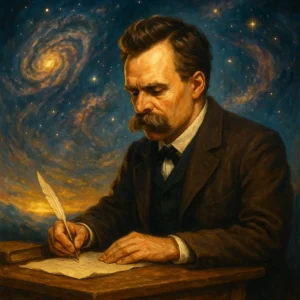
“One must still have chaos in oneself to give birth to a dancing star.”
Finding ourselves temporarily back on Zeus’ throne, we overcome the burdens and soften once again back to the centre. The soft, divine energy of source resolves the dense memories of the body. Freed from the contorted grimace of desolation and nourished with mother’s milk we’re happy to be back in the nanny state of sovereignty with oversight. Loved and acknowledged we can begin playing again with the abstract and archaic DUPLO building blocks of reality’s playground. The division of consciousness is a game of shocking ourselves and then running back to safety. The trick is how to forget that we’re also the one hiding.
If we’re not having fun. If the adventure to the outer planets appears a little daunting we can always bring online the eternal inner child. Inner child work is having the best of both worlds—dividing our consciousness between the adult adventurer and the divine inner child who has communication with ground control.
Nietzsche understood that welcoming in a new ascetic of being required a thorough critique of the existing paradigm, one that may be considered pessimistic only if an alternative is unavailable. If you can leave the cage, or see the larger process, it is optimistic to review your existing circumstances and those who discourage boat rocking need to carefully understand the consequences of spirits that are not allowed to evolve. In this, Nietzsche wished to invite these free spirits to transform themselves through a “gymnastics of the will” into physicians, priests, teachers, and leaders in one. Only such human beings would be able to become cultural healers of an illuminated world.
“If the world had an end it would already have been reached. If there were a definitive state for the world it would equally already be realised. If there were a permanent state and rest and in its course the world had been in such a state in the strict sense of the word, just for a moment, then the world could already not become anything.” – Nietzsche
“Happy is he who, having witnessed things: he knows life’s end and its Zeus-given beginning.” – Eleusis
If you would like to understand more about the comprehensive Inner Child work and the ongoing integration support that we offer at the Inner Council then feel free to contact us for a casual and confidential conversation. We are, by the way, expecting you.
Notes:
Who Is Nietzsche’s Zarathustra? – Martin Heidegger
Nietzsche’s Zarathustra: Notes of the Seminar given in 1934-1939 by C.G.Jung: Volume 1 – C. G. Jung
Zarathustra’s Return – Herman Hesse
Nietzsche’s Epic of the Soul: Thus Spoke Zarathustra – T. K. Seung
What is Nietzsche’s Zarathustra?: A Philosophical Confrontation – Heinrich Meier
Nietzsche’s Therapeutic Teaching: For Individuals and Culture – Horst Hutter & Eli Friedland


